More on News
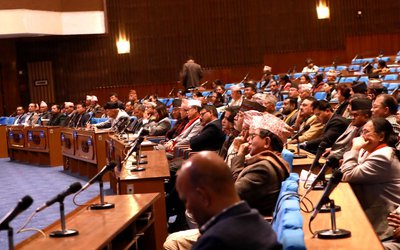
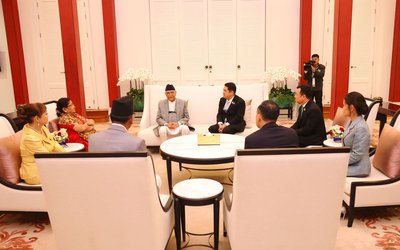
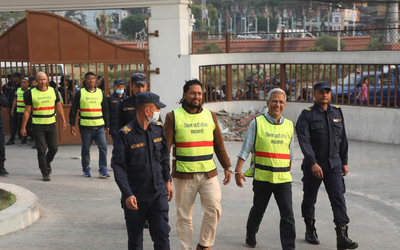
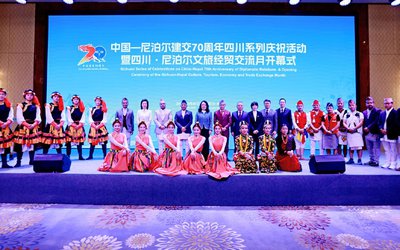
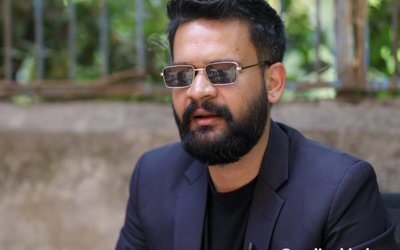
On those days when there were a few surgeons in the country, almost everyone aspired to get an appointment from Dr. Anjani Kumar Sharma. They waited for quite a long time to see him. Many people still believe this surgeon’s hands had a precision others rarely had.
Till a decade or two ago, there were no medical facilities like today to diagnose the disease. Surgeons and physicians were responsible to find out the cause of pain or disease.
Dr. Sharma, therefore, is not a new name in Nepal’s health sector. He is among a few surgeons to lead the surgery department of Bir Hospital.
Sharma wanted to be a doctor ever since his mother died in the absence of doctors.
“My mother did not get any medical help and ended up losing her life. I don’t think anyone should die in the absence of medical help,” said Sharma.
Health care problems are varied and enormous in Nepal. The health care facilities are considerably poor. The majority of people here live in mass poverty while the nation’s small wealth is concentrated in the hands of the few. Poor nutrition and sanitation, inadequate housing for most families and the general absence of modern medical care and other services, especially in the rural areas, have been the major issues of the health sector.
In those days, polio and typhoid were also common. And most importantly, a large number of people relied on “Jhakri”, a traditional spirit healer.
Dr. Anjani Kumar Sharma shares with Shradha Gyawali how he saw Nepal’s health system evolve over time.
Experts:
How do you describe your first surgery?
My first surgery was a big challenge for me. I still remember my first patient was a VVIP, who was paralyzed. I was asked to help her out and I tried. The surgery was successful and she started walking again. This success gave me a lot of satisfaction. I was then appointed as the ‘Royal Surgeon’.
How do you view the advancement of medical facilities in Nepal?
It is improving but there is a long way to go in order to meet the international standards. I know a time when we only had a few people, but today, we have a lot of people working in this field. Things are surely improving and the day isn’t far when we will meet up to the international level.
You have been an activist in cancer awareness in Nepal. How do you describe that role?
As a surgeon, I came across a lot of cancer patients. I felt a need of developing a cancer center in the country. Ten years back, all the cancer patients had to be sent to Mumbai. But now things are different. Prime Minister late G.P. Koirala said we should have a cancer hospital in Bharatpur. Then the Bharatpur hospital was made. We have all the facilities, but few people are using it well. All the doctors are using the hospital as a stepping stone to come to Kathmandu.
Then I approached the locals in Bhaktapur to develop a cancer hospital. In the beginning, we had nine beds there. Now we have sixty and we are aiming to take it up to hundred in the near future. We have all the necessary facilities available. If cancer is detected early, it’s curable. I have also published a book (Cancer Chetana) to make people aware of this deadly disease.
Do you think the health system in the country has improved?
Not really. I am sure there are a lot of people like me who want to develop and improve the health system here, but a man can do only so much alone. We rarely get help (monetary help) from the government. The Bharatpur hospital is a gift from China and the best highway in the country is the gift from the government of Japan.
You have also been involved with the Lion’s Club. What is it that motivates you at this age of 78?
In 1972, I felt the need of improving the society. Social uplift was an issue. There are a lot of people who can afford a decent education but the number of people who cannot afford education is much higher in our country. Lion’s club wanted to improve the quality of life. We try to help people with physical disabilities so that they can compete with the rest. I have also established a school in my village. I feel great pride when I see students from the school helping the village as a health assistant.
What do you think has been your greatest achievement?
The fact that the health services in the country have somehow improved gives me immense pleasure. I am also proud of the fact that Nepali doctors are now representing their country in International forums. This doesn’t mean we stop here. There is a long way to go in order to improve the health system in the country. Only if we have diligent doctors, I am sure we will soon be competing in the international level.







